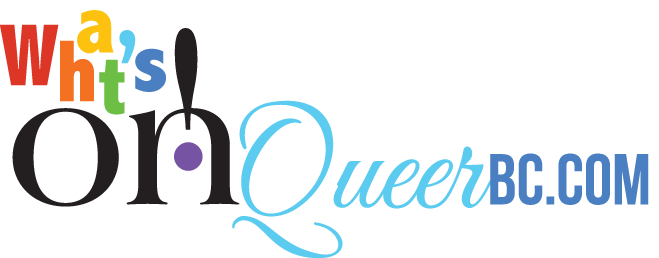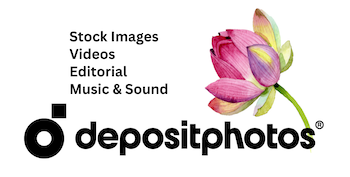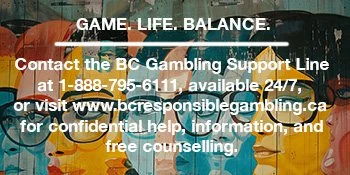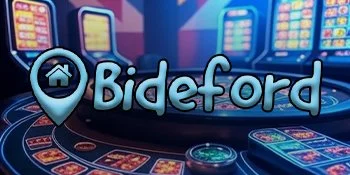Pride on the Fairway: How Queer Golf Communities Are Growing in Canada
For too long, golf was seen as a sport that queer people might hesitate to embrace. Traditional country-club atmospheres, conservative dress codes, and a lack of representation created unspoken barriers. Yet today, an inclusive revolution is quietly reshaping the green-and LGBTQ+ golfers across Canada are embracing the fairway as a place not merely for sport, but for belonging.
Why Golf Appeals to 2SLGBTQiA+ Players
Golf is fundamentally a social sport. Its measured pace invites conversation, laughter, and personal connection between shots, less high-pressure than contact sports, and more human. For many queer players, the course becomes not just a venue for play, but one for community-building. Beginners and pros mingle, swapping tips, jokes, and encouragement, creating space where everyone, regardless of skill, can thrive.
One of my all-time favourite memories was playing in a 9-hole golf tournament in Rossland BC during the late 1970s. It was a team event, and my team member was Dan a good friend and hilarious man. Every Tee was set up with a booze booth serving tequila shots and pina coladas. It was the 1970s! These things were possible then lol. Dan and I had such a crazy fun and hilarious day. I laughed so hard. Dad passed away five years later from AIDS. I miss that guy.
Breaking Down Barriers, One Swing at a Time
Golf's exclusive roots aren't easily dismissed: some clubs in Canada held restrictive membership policies well into the 21st century. But grassroots initiatives are changing that narrative from the outside in. The national network Together We Golf (TWG), founded in 2020, stands at the forefront of this transformation. TWG's mission is clear: to dismantle barriers and promote inclusivity in golf, irrespective of age, gender, race, or socioeconomic status. They host both in-person and virtual events-clinics, leagues, and social tournaments-fostering a shared passion for the game and community across the country.
Voices from the Fairway
Kylie Frederick, a PGA of Canada Class A professional based on Vancouver Island, brings both expertise and visibility to queer golf. She reflects: "I am an athlete, but I am also gay. ... If I'm not talking about that part of me, I am doing a disservice." Frederick emphasises that being openly LGBTQ+ invites conversation and helps create a safer, more inclusive environment.
Bobbi Lancaster, a Canadian transgender golfer who sought to qualify for the LPGA Tour in 2013, personifies the perseverance and visibility that inspire many within queer sport.
The Institutional Push for Inclusion
Beyond the community level, the sport's national body is stepping up. Golf Canada has embedded diversity, equity, and inclusion at the centre of its strategy. This includes staff and volunteer training, a diversity policy, integration of inclusive programming across events, and resources tailored to equity-deserving groups, including 2SLGBTQIA+ communities.
They also offer a Community Diversity, Equity and Inclusion Grant, administered through the Golf Canada Foundation. This grant is open to community organizations or initiatives that work to grow the game among underrepresented groups—including the LGBTQ2IA+ (i.e., 2SLGBTQiA+) community
What Queer Golf Means in Canada
Creating queer-focused golf spaces offers far more than a round on the course. For many, these groups become vital social spaces-especially beyond Pride events or nightlife scenes. They offer an accessible, welcoming environment where queer friendship, mentorship, and sometimes romance, can flourish amid fresh air and shared experience.
Representation matters. While professional golf still has few openly queer players, community tournaments, Pride-themed scrambles, and rainbow-accented tees visually and emotionally signal: "You are welcome here."
How to Get Involved
If you're curious about joining queer golf in Canada:
1. Find a local LGBTQ+ golf group.
Start with local community boards, Facebook groups, or sites like OutSport Toronto or What's On Queer BC. For example, the Vancouver Gay Golf Club is a casual group for golfers in the 2SLGBTQiA+ community looking to play 9 or 18 holes around the lower mainland. Join the Facebook Group.
2. Connect with Together We Golf They offer both virtual gatherings and in-person events and clinics that span the country.
3. Look for Pride-themed tournaments. These are typically beginner-friendly, socially focused, and often low-barrier.
4. Bring a friend. Having company can ease any nerves about stepping onto a course for the first time.
Don't see a group in your area? Start one. Many of today's queer golf communities began with just a few friends booking a tee time-and a shared desire to belong.
The Cost of Belonging
Even as queer golf groups build community and visibility, the cost of the game remains a barrier. A round of golf can easily run between $50 and $100, and that doesn’t include equipment, attire, or lessons—expenses that can quickly exclude people without disposable income. For queer folks, especially those who are racialized, trans, or from working-class backgrounds, affordability can be just as limiting as representation.
Some groups try to offset these barriers by meeting at public courses or organizing low-cost outings, though formal supports like fee subsidies or equipment sharing remain rare. In Toronto, a public consultation on city-run golf courses found that many 2SLGBTQiA+ respondents pointed to cost as a major obstacle, with strong support for free or discounted gear and lessons. National programs like First Tee and Youth on Course are working to expand access for underserved youth, but few of these initiatives are tailored specifically to queer players.
True inclusion in golf means tackling financial barriers head-on—something queer grassroots groups are well-positioned to lead, if given the resources and support.
Here are some Vancouver-based options:
The City of Vancouver’s Leisure Access Program supports low-income residents with free or discounted access to many recreational services. That includes a 50% discount on admission and club rentals at pitch-and-putt golf courses
On the loyalty side, the city also offers a Preferred Player Loyalty Program. It's free to join and lets you earn points toward free rounds as you play—helpful for reducing cumulative cost over time.
For mainstream golf courses like Langara, McCleery, and Fraserview, there are seasonal perks.
Greater Vancouver Courses
These golf courses are owned and operated by the City of Vancouver through the Vancouver Park Board:
Full 18-Hole Courses:
Fraserview Golf Course
Langara Golf Course
McCleery Golf Course
Pitch-and-Putt Courses:
Stanley Park Pitch & Putt
Queen Elizabeth Park Pitch & Putt
Rupert Park Pitch & Putt
That makes six city-owned golf facilities in total—three full courses and three shorter, beginner-friendly ones.
Looking Down the Fairway
Golf Canada's inclusion work and growing grassroots networks are helping golf become more welcoming-and visibly so. And as queer golfers continue to show up, clubs, brands, and courses in Canada will increasingly recognize the importance of creating equitable spaces. Queer participation isn't a niche. It's community-building, representation in motion, and the best kind of fairway revolution-one laid out in friendship, authenticity, and shared sunlight.
Because in the end, golf isn't just about the scorecard. It's about laughter after a wild shot, quiet camaraderie on the green, and knowing you belong. For queer golfers in Canada, that space is growing. So for all our golfing readers, lets get OUT on the green!
If you know of any queer golf groups or events in the Great Vancouver area, let us know and we can add them to this article. Send it over to whatsonqueerbc@gmail.com









